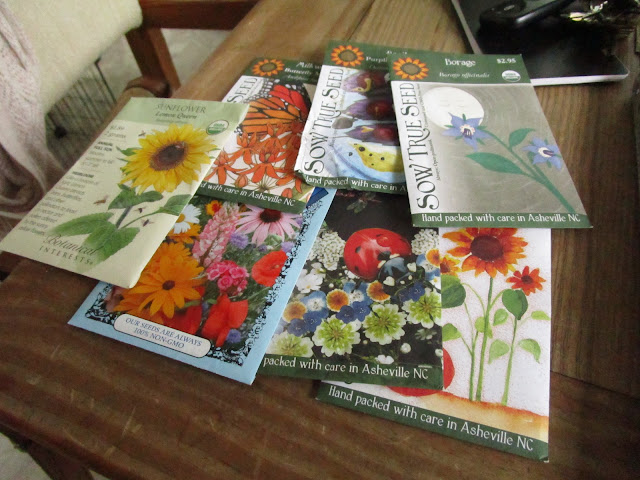Storing What You Grow
How do I store it all safely?
One of the most important things to me regarding food is safety. As a Certified ServSafe Instructor I know all the dangers of improperly handled food. That why when I got curious about storing foods through canning, dehydrating, and freezing I made Food Safety my top priority.
The first thing that I did was start talking to people. I asked my mom who grew up canning everything from Pa's garden. A friend and I also went to a free food preservation class at the local Cooperative Extension Agency.
| Courtesy of Bing |
What is Cooperative Extension?
Cooperative Extension is an organization that provides information about agriculture, livestock, food preservation and safety, and family and child development. Most counties have several agents: one who deals with agriculture and home gardening, another to deal with livestock, another who handles Family and Consumer Sciences related questions, and so on.The coolest thing about Cooperative Extension is that the agents are considered University faculty - all of their information comes from agricultural (typically Land-grant schools) universities. In North Carolina that is NC State University but many schools from all over the state and the country work together to create the information that these agents use. It's all research based and tailored for your region. So there is Cooperative Extension from New York to Florida to California.
I think these resources are important to share because this organization not only provides information about how to grow food but what to do with it.
Food Preservation Class
Honestly, this was probably the best hour I'd spent learning about food preservation. Being a novice gardener meant I'd had little experience growing food, let alone have enough to save for later. But, I'm an ambitious little woman and I hoped that some day I would. |
| #Goals |
The class focused on three methods of preserving food: canning, freezing, and dehydrating. I could do several posts on each of these methods (in fact, I plan on it) but I'll give you an overview.
Canning
This is a great method for preserving moist foods that you want to keep moist and be able to store at room temperature. No power outages are going to ruin all your food if it is kept in a can. Most properly canned foods can be kept for a year (some would argue longer) but quality does deteriorate fairly quickly. Also some foods are not good canned - asparagus comes to mind. For simple high-acid foods, like pickles, jams and tomatoes, you only need a boiling water canner. But foods that are lower-acid or contain meats like stews, peas, etc., you need a pressure canner.
- Learn More About Canning from Cooperative Extension
Freezing
I personally think freezing food is a great way place to start. Many of the processes used in freezing food are also used in canning. Freezing is wonderful because it keeps food in a condition most similar to how it is fresh from the garden. It also helps food retain more nutrients. Freezing food tends to be quicker than dehydrating or canning food and of course a lot less dangerous. However, frozen food has to be kept frozen to be any good. Once the power goes out, food storage can be compromised. Further, some foods don't freeze well, like snow peas for example. Generally though, most things can be frozen and will last for up to a year with proper temperature control.- Learn More About Freezing from Cooperative Extension
Dehydrating
This method really caught my eye. I'd been curious about dehydrating as a way to keep my annual herbs. (In fact, as a result of this class, I bought a dehydrator and have used it many times.) Dehydrating is great because it's a simple, traditional way to save lots of foods. Most foods can be dehydrated but one must be careful with meats to prevent time temperature abuse and food borne illness. Some people in dry climates can dry food just by hanging it. However, in the humid climate in which I live, I need a dehydrator. Foods must be dehydrated and stored properly otherwise they will develop mold and spoil. Dehydrated foods can be re-hydrated and used just like you would the fresh product.- Learn More About Dehydrating from Cooperative Extension
 |
| Don't Forget Freezing & Dehydrating! |
I've made strawberry Jam and Pickles as well as stored tons of frozen and dried foods since. It's been great. Do a little Googling and maybe you can find a class in your area, too!
I hope you've found this entry interesting. I'd love to share more of my food and gardening related adventures with you another time!
Take Care,
Rebecca


Comments
Post a Comment